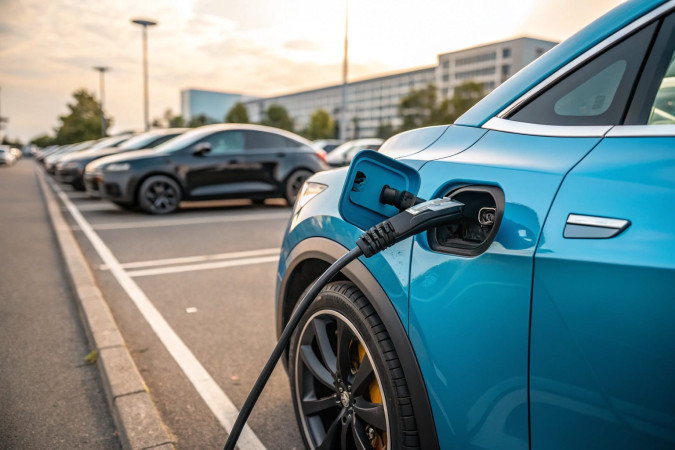
Follow India Renewable Energy News on WhatsApp for exclusive updates on clean energy news and insights
Govt Issues Guidelines for EV Charging Deployment Under PM E-DRIVE
Oct 01, 2025
The Ministry of Heavy Industries (MHI) has released detailed operational guidelines for setting up Electric Vehicle Public Charging Stations (EV PCS) under the PM E-DRIVE Scheme, which has a total outlay of Rs10,900 crore, including Rs2,000 crore earmarked for charging infrastructure. The initiative is designed to accelerate EV adoption by creating a robust, accessible, and standardized national charging network.
Proposals can be submitted by government ministries, CPSEs, state/UT governments, and PSUs, either independently or in partnership with Charge Point Operators (CPOs). Eligible entities include IOCL, BPCL, HPCL, NHAI, AAI, metro rail corporations, and others. Deployment will prioritize million-plus cities, Smart Cities, state capitals, NCAP cities, and highways connecting major industrial hubs, ports, and metros.
The charging infrastructure must comply with Ministry of Power’s 2024–25 standards, covering light EV connectors, CCS-II fast chargers up to 500 kW, and heavy vehicle guns of 120 kW or higher. Battery Swapping Stations (BSS) and Battery Charging Stations (BCS) are also eligible.
Financial support will cover upstream infrastructure like transformers, cabling, and civil works. Government premises with free public access will get 100% subsidy, while airports, metro stations, toll plazas, and OMC outlets will receive 80% on infrastructure and 70% on EVSE. Other eligible urban and highway sites will also get 80% support. Subsidies will be benchmarked from Rs6.04 lakh (50 kW) to Rs24 lakh (150+ kW).
Implementation will follow a three-stage process: proposal submission, procurement and installation, and commissioning with integration into MHI’s National Unified Hub for charger discovery, booking, and payments. BHEL has been appointed Project Implementation Agency, while IFCI will oversee project management.
These guidelines aim to build a seamless, nationwide charging and swapping ecosystem, increasing EV adoption and strengthening India’s clean mobility transition.